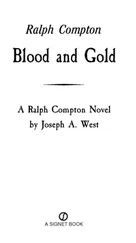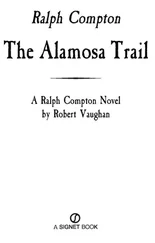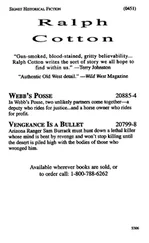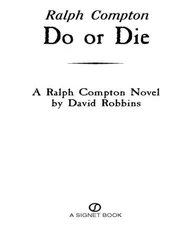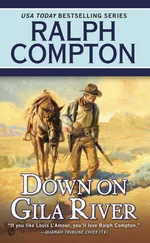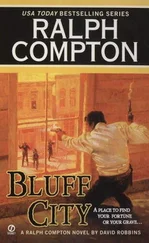Ralph Compton - West of the Law
Здесь есть возможность читать онлайн «Ralph Compton - West of the Law» весь текст электронной книги совершенно бесплатно (целиком полную версию без сокращений). В некоторых случаях можно слушать аудио, скачать через торрент в формате fb2 и присутствует краткое содержание. Год выпуска: 2008, ISBN: 2008, Издательство: Thorndike Press, Жанр: Старинная литература, на английском языке. Описание произведения, (предисловие) а так же отзывы посетителей доступны на портале библиотеки ЛибКат.
- Название:West of the Law
- Автор:
- Издательство:Thorndike Press
- Жанр:
- Год:2008
- ISBN:9781410409225
- Рейтинг книги:4 / 5. Голосов: 1
-
Избранное:Добавить в избранное
- Отзывы:
-
Ваша оценка:
- 80
- 1
- 2
- 3
- 4
- 5
West of the Law: краткое содержание, описание и аннотация
Предлагаем к чтению аннотацию, описание, краткое содержание или предисловие (зависит от того, что написал сам автор книги «West of the Law»). Если вы не нашли необходимую информацию о книге — напишите в комментариях, мы постараемся отыскать её.
West of the Law — читать онлайн бесплатно полную книгу (весь текст) целиком
Ниже представлен текст книги, разбитый по страницам. Система сохранения места последней прочитанной страницы, позволяет с удобством читать онлайн бесплатно книгу «West of the Law», без необходимости каждый раз заново искать на чём Вы остановились. Поставьте закладку, и сможете в любой момент перейти на страницу, на которой закончили чтение.
Интервал:
Закладка:
Chapter 15
McBride and Prescott headed north across broken, hilly country, then swung west along the bank of Apishapa Creek.
‘‘Lead us right to the Peaks,’’ Prescott said. He turned in the saddle and looked at McBride. ‘‘You ever been in this country before?’’
McBride was bouncing on the trap’s seat springs and his voice jolted as he answered, ‘‘First time.’’
‘‘The Comanche, Ute and Apache figured the Peaks were sacred and named them Wahatoya. That means ‘Breasts of the Earth’ in plain American. Before that, the Aztecs came up this far, hunting for gold and slaves.’’
McBride looked around him. Deer were feeding among the cottonwoods lining the banks of the creek, their sleek coats dappled by the sunlight filtering through the leaves. Trout leaped in the sun-spangled water and far off a small herd of antelope merged into the shimmering horizon and disappeared from sight.
Ahead, a rocky plateau rose above the plain, as yet just a ribbon of blue in the distance. Prescott told him the Spanish Peaks rose to the north of the plateau in high, big-pine country. To the south lay the bend of the Picketwire and, thirty miles south of that, the New Mexico border.
‘‘Kit Carson, Wild Bill Hickok and a bunch of mountain men traveled this country,’’ Prescott said. ‘‘And a lot of outlaws still do.’’ He smiled. ‘‘Myself included.’’
‘‘You on the run from the law?’’ McBride asked.
Prescott nodded. ‘‘Yeah. Sometimes after you kill a man all you can do is run. It’s either that or face a vigilante necktie party.’’ He hesitated a heartbeat, then said, ‘‘And you, John, what are you running from?’’
McBride was taken aback. ‘‘Is it that obvious?’’
Prescott shrugged. ‘‘You claim you’re not the law, so you got to be running. You didn’t come to High Hopes to save a woman. You came because you figured you’d run far enough.’’
‘‘I killed a man,’’ McBride said.
‘‘Back in the city?’’
‘‘New York.’’
‘‘I’d say you’ve skedaddled a fair piece off your home range.’’
‘‘Could be I haven’t run far enough,’’ McBride said, remembering Gypsy Jim O’Hara. ‘‘The father of the man I killed has a far reach.’’
‘‘Then watch your back trail, John. Them’s words of wisdom.’’
They camped that night in a grove of mixed juniper and piñon, beside a stream that bubbled clear from between a cleft in a sandstone parapet that stood taller than a man. The wall, shaped like the prow of a ship, jutted from the side of a hill and it had been undercut by centuries of floodwater, forming a deep hollow.
‘‘I reckon we’ll be glad to sleep in the cave tonight,’’ Prescott said. He lifted his head and tested the wind. ‘‘I smell lightning.’’
‘‘All I can I smell is the salt pork frying,’’ McBride said sourly, hurting from the jolting misery of the poorly sprung trap.
‘‘Maybe so—but listen.’’
Prescott, possessing the instincts of a hunted animal, had heard the thunder long before McBride. But now, as he stepped away from the sizzling fry pan and crackling fire, McBride heard it too.
The storm was blowing in from off the rocky backbone of the Sangre de Cristo range, and by the time McBride squatted by the fire to eat, the sky to the west was flashing silver.
‘‘Be here in an hour or less,’’ Prescott said. ‘‘And it sounds like a big one. Summer lightning storms in Colorado can put a scare into a man. After we eat we’ll bring the horses into the cave.’’
Thirty minutes later the wind began to blow strong. It tossed the branches of the juniper, tattered the flames of the fire and threw up crimson sparks that rose bright into the darkness, then winked out like dying stars.
As McBride and Prescott moved into the meager shelter of the cave, thunder bellowed like a monstrous bull as lightning branded the sky. Rain hammered down, hissing like a snake, and around them the fragile, crystal air shattered into a million shards, catching the lightning flare, shimmering with fire.
The night was being torn apart to a mad symphony of thunder and lightning and the demented counterpoint of the howling wind.
And John McBride did not like it one bit.
‘‘Not like the big city, huh?’’ Prescott said, raising his voice over the din. He was grinning, building a cigarette, a man completely at ease with his environment.
‘‘I’ve never seen it real close like this,’’ McBride answered. ‘‘In New York the thunder was always above the rooftops, up where the pigeons live.’’
Prescott thumbed a match into flame and lit his cigarette, the blue smoke he exhaled immediately snatched away by the wind. ‘‘We’ll be safe enough so long as we stay right where we are.’’
McBride smiled. ‘‘Luke, at this moment wild horses couldn’t drag me out of this cave.’’
The storm was directly above them now, a colossal, scarlet-scaled dragon that roared and breathed blue fire.
McBride was blinded by the searing intensity of the lightning strike, deafened by the accompanying bang of thunder. Beside him he was aware of Prescott jumping to his feet, a curse on his lips as he ran to the horses. His stud recoiled from him, reared and backed out of the cave. The big horse then swung around and ran into the night.
The trap was upended, the wheels blasted away. A few feeble flames fluttered on the woodwork like yellow moths, then died in the rain.
Prescott cursed long and loud. He turned and looked at McBride, his eyes blazing. ‘‘It will take me all day to round up that damned stud. He’ll keep on going until he outruns the storm.’’
‘‘The trap’s done for,’’ McBride said, realizing he was piling misery on misery.
‘‘See that,’’ Prescott said without interest.
The little mustang was standing head down, seemingly oblivious to the thunder and the loss of its companion. ‘‘We still have a horse,’’ McBride said.
Prescott nodded. ‘‘You could call it that.’’
McBride could see that the other man was seething mad, and he let it go. He sat down, wrapped in a cocoon of gloomy silence as the storm raged around him. At some point in the night he fell asleep. He dreamed of Shannon and horses.
When McBride woke, Prescott was gone. He stepped to the trap and saw to his chagrin that it was wrecked beyond repair. Ebenezer would charge him dearly for the lost wagon, he knew, and it would put a big hole in his dwindling supply of money.
The sky was clear, the color of washed-out denim, tinged with red. The air smelled fresh of rain and piñon, and water hung on the leaves of the junipers, a point of morning light captured in each drop.
But McBride took little joy in the dawn, the loss of the trap and the prospect of being forced to walk weighing on him.
The ugly little mustang had left the cave and was grazing on bunchgrass as McBride filled the coffeepot at the stream and added a handful of Arbuckle.
He had forgotten about the fire.
Two hours later, when Prescott rode into camp astride his stud, McBride had used up his matches and all he had to show for his efforts was a few charred twigs.
The little gunfighter sat his horse and grinned. ‘‘Coffee smells good.’’
‘‘The wood is wet,’’ McBride said defensively, irritated that the other man sounded so cheerful. ‘‘Damn it, everything is wet.’’
Prescott slid off the stud and stepped to the ashes of the fire. He gathered up some twigs and leaves and within a few minutes had a fire blazing. He set the coffeepot on the flames and built a smoke, smiling, but saying nothing.
‘‘In New York,’’ McBride said defensively, ‘‘when I want coffee, I say to a waiter, ‘Bring me coffee,’ and he brings it.’’
Читать дальшеИнтервал:
Закладка:
Похожие книги на «West of the Law»
Представляем Вашему вниманию похожие книги на «West of the Law» списком для выбора. Мы отобрали схожую по названию и смыслу литературу в надежде предоставить читателям больше вариантов отыскать новые, интересные, ещё непрочитанные произведения.
Обсуждение, отзывы о книге «West of the Law» и просто собственные мнения читателей. Оставьте ваши комментарии, напишите, что Вы думаете о произведении, его смысле или главных героях. Укажите что конкретно понравилось, а что нет, и почему Вы так считаете.

